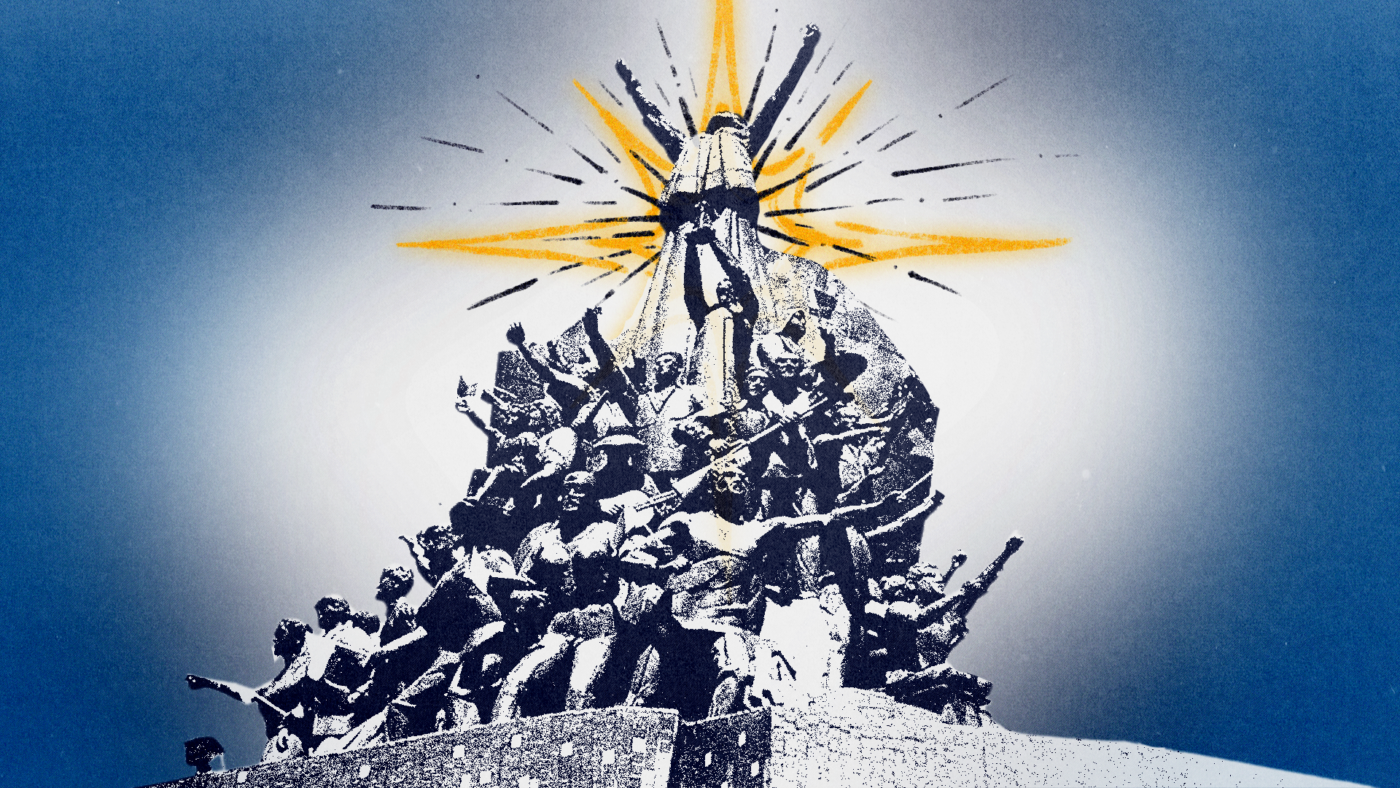Radyo Bandido, an underground radio station led by a Jesuit priest and a DJ, played a vital role in the EDSA revolution. Then 13-year-old Gabe Mercado recounts his experience from aspiring to be an actor to aiding a revolution.
THIRTY-EIGHT YEARS ago, the Filipino nation took to the streets to oust former president and dictator Ferdinand Marcos Sr. from a 14-year chokehold on the country. Ateneo alumni Gabe Mercado, 13 years old at the time, was not physically present on the streets of Epifanio de los Santos (EDSA) Avenue. Instead, he and a team of aspiring actors were holed up in an underground radio station uncovering the pivotal EDSA People Power Revolution as it unfolded in front of their very eyes.
Going on air
The sequence of events that would lead to Mercado’s involvement in the EDSA revolution began when he was taken under the wing of James Reuter, SJ. “Fr. Reuter was arguably one of the most popular Jesuits since the 1950s,” Mercado says. “If you wanted to get [into] theater, you would act under him,” he adds.
Fr. Reuter’s rise to fame can be linked to his love for media, particularly theater and radio. He mentored a generation of young talents who would later dominate different Filipino industries.
A persistent and consistent lover of radio, Fr. Reuter produced the radio program “The Commonwealth Hour” in his early days in the Ateneo. After his arrest during the Second World War, he pursued radio and television studies at Fordham University.
Neither war nor revolution could intercept Fr. Reuter’s shortwave. Radio would be a passion he would inspire his young actors to take up as well—one that Mercado cites, apart from stage work—to be what prepared him for the fated coverage.
Everyone knows, however, that both radio and revolution would be incomplete without a voice.
Tita June Keithley, who would later be dubbed the “voice of the revolution,” also got her start as an actress under Fr. Reuter. This, along with her experience as a television host, would lead her to be the embedded host of Radyo Veritas, the only surviving non-propaganda radio station under Martial Law.
“One of the first things [Marcos] did was rule over airwaves at a time when TV and radio were the only credible voice,” Mercado says. Run by the Catholic Church, Radyo Veritas was thereby off limits to the government. This exception would make it, as Mercado coins, the “only semblance of hope.” In spite of that, Radyo Veritas was careful not to endanger their mission at the time, which was to bring the Catholic faith to Asia, specifically China.
This mission would last up until the 1986 Philippine snap elections, when the only logical move to cease Marcos Sr.’s return to power was to go against him.
Switching the channels
“The move to speak up against the Marcoses was unexpected,” Mercado mentions.
Truly, a Catholic radio station, an “apolitical” DJ, and a Jesuit with his pack of theater actors seemed to be an unlikely group to take down the leading figure of the country. Nevertheless, the combination created the perfect recipe to charge the opposition. It was Cardinal Sin’s on-air call for the people to gather at EDSA that pushed things right over the edge. Hours after he spoke, military forces knocked down the 40-million-peso Radyo Veritas transmitter. One of the only standing sources of information the Filipino people had suddenly went radio silent.
The pack at Radyo Veritas was not at all quiet, however. By then, they received word that Marcos Sr. had ordered his men to take “that rebel radio station down.” They knew for certain the transmitter was just a warning shot. With the guidance of then-Defense Minister Juan Ponce Enrile, the team fled to an underground radio station they named “Radyo Bandido.” Mercado stated that they were “basically homeless” yet remained dedicated to serving the Filipino people by providing them with the truth that has been withheld from them all this time.
The truth is, Mercado was not scared when all this went down. The juvenile courage that came with his age proved beneficial to the mission. “When you’re a teenager, you’re fearless,” he shares. “How do you have fear when you’re 13 years old?”
Fearless, however, may be a more apt word for Tita June and Fr. Reuter, who had everything to lose with this arrangement. Fr. Reuter had a legacy as a mentor, an artist, and a Jesuit to leave behind. Meanwhile, Tita June had a 12-year-old son. Regardless, they remained. The danger would only dawn on Mercado later, to think that his 13-year-old self was among the targets of the highest-ranking leaders of the country.
When the children’s parents started to worry, Fr. Reuter refused to buckle. He told them: “Your children have the chance to die as heroes. Let them die as heroes.”
“I’m pretty sure you don’t have Jesuits like that anymore. Ma-ca-cancel ang in-your-face type of Jesuit (Those types of Jesuits will be canceled),” Mercado jests. “He was kind, but he was also a disciplinarian and he drove people.”
For Radyo Veritas’ perseverance in covering the biggest story of the nation, they were awarded the Ramon Magsaysay Award for Journalism, Literature, and Communication Arts. Everyone involved in the broadcast shares this honor, even the 13-year-old child who became a part of something so much bigger than he could have dreamed.
Changing the frequency
Presently an actor, director, teacher, and co-founder of the kids’ creative makerspace VIVITA Philippines, Mercado is a seasoned media practitioner. He says that truthfulness, authenticity, attentiveness, and curiosity remain indispensable tools in today’s media landscape.
Mercado also emphasizes the concepts of justice and Liberation Theology at the intersection of religion and activism. “You cannot be a person of faith and ignore your obligations in a just society. That was so important back then,” Mercado asserts. Today, Mercado believes that the youth can rise to any occasion for as long as they are given the opportunity to do so.
Looking back at his work as a 13-year-old manning the broadcast of a revolution, Mercado wishes everyone to turn the spotlight to endeavors that he considers “more heroic.” His role in the revolution is only a single string to an entire web of heroism that spanned the 14 years of Martial Law. On the annual celebration of freedom, Mercado calls for everyone to remember those who suffered under the hands of oppression. They serve as a reminder to never let such freedom slip from our grasp again.
“I had it easy. […] [I just devoted] 14 hours and some see me as a hero. But the struggle was, is, and continues to be longer than 14 hours,” Mercado concludes.
Editor’s Note: The interview with Gabe Mercado took place last year.







